Top 20 Must-Eat Superfoods for Optimal Health After 50

What you eat as you grow older is very important for health, independence, and longevity. "We need fewer daily calories as we age because our metabolism naturally begins to slow," Amanda Malone, MD, tells Maryland Primary Care Physicians. "Since you don't need as many calories, those calories you do consume become very important. Your diet after age 50 should include a variety of healthy, nutrient-dense foods. Add in daily exercise, and you're on the path to a higher quality of life and enhanced independence as you age." Here are 20 superfoods that will help with weight loss, fitness, and overall health after 50.
Berries
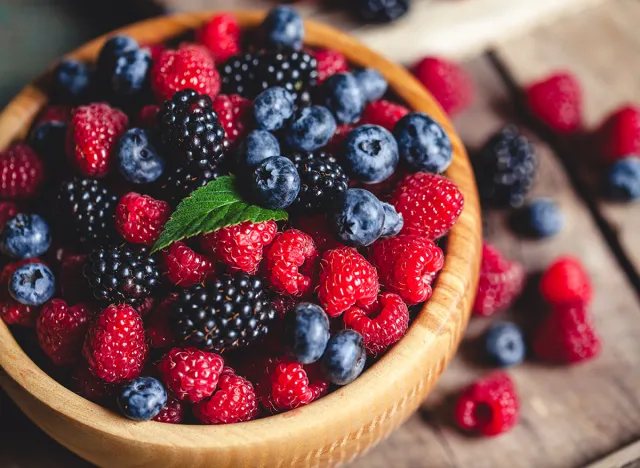
Berries are low in sugar and calories and high in fiber. "Fiber helps keep us regular, manage our weight, and protect against diseases like diabetes, heart disease, and cancer," registered dietitian nutritionist Nancy Farrell Allen tells AARP. "Berries contain potent antioxidants that may improve motor skills and short-term memory."
Leafy Greens
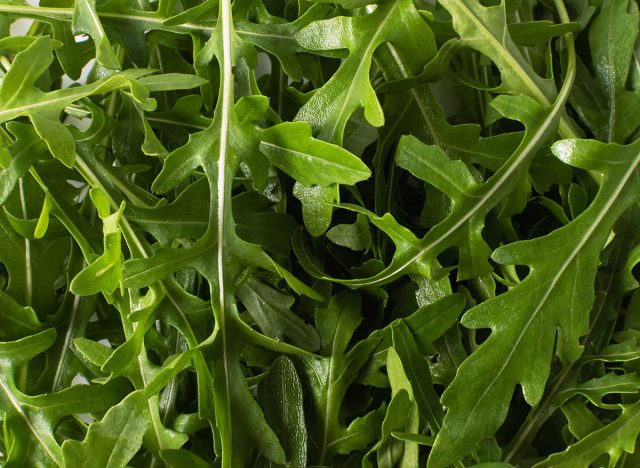
Eat left greens like arugula, kale, spinach, and broccoli. "As we get older, our bones become softer and need calcium," Marie Bernard, MD, chief officer for scientific workforce diversity at the National Institutes of Health (NIH), tells AARP. "That's something you can get from low-fat dairy and dark-green leafy vegetables."
Lean Protein
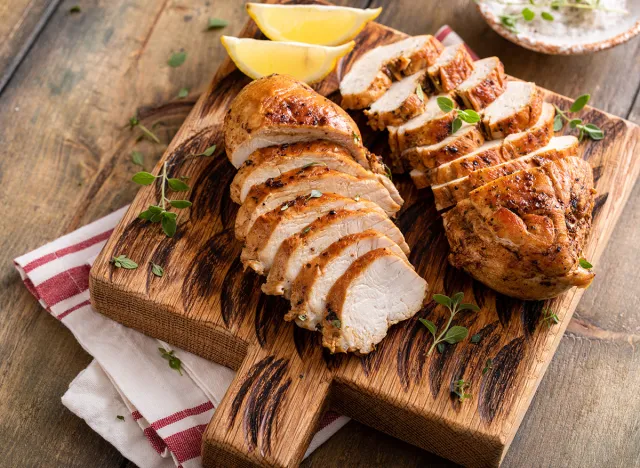
Get five to six ounces of protein a day. "We have studies to suggest that older adults need to be more sensitive to protein intake because their bodies are not as efficient at using protein as middle-aged folks," registered dietitian and nutritionist Christine Rosenbloom tells AARP.
Avocado and Olive Oil
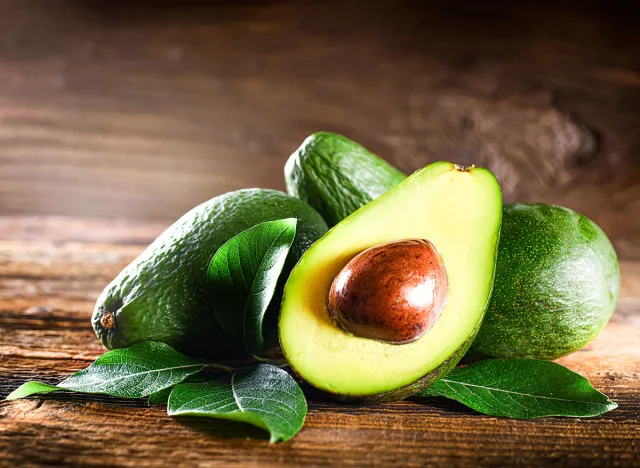
Include healthy fats in your diet. "Pick healthy fats, which can serve as a source of concentrated, healthy calories," Katherine D. McManus, MS, RD, LDN, tells Harvard Health. "Healthy fats include olive oil, canola oil, peanuts and other nuts, peanut butter, avocado, and fatty fish such as salmon, sardines, and mackerel. Limit unhealthy saturated fat, including fatty red meat."
Water

Make sure to drink enough water every day. "Drink enough liquids so you don't get dehydrated," says MedlinePlus. "Some people lose their sense of thirst as they age. And certain medicines might make it even more important to have plenty of fluids."
Coffee and Red Wine

Coffee and red wine can be enjoyed in moderation. "Moderation is key here; however, both coffee and red wine can play a complementary role in a healthy diet for aging adults," says Harvard Pilgrim Healthcare. "Both beloved beverages contain antioxidants, which are known to boost the immune system. In addition, these beverages are known to promote blood flow and could potentially increase life span."
Seafood
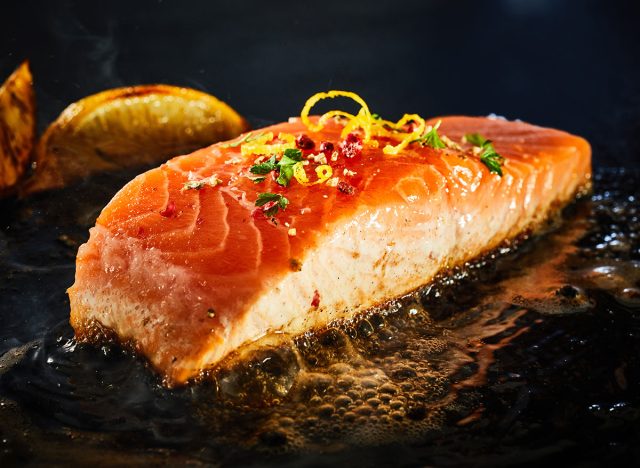
Oily fish like sardines and salmon are full of healthy fats. "Seafood also has omega-3 fatty acids," Rosenbloom says. "Two to three servings a week reduce the risk of death for the bulk of chronic diseases by about 17 percent."
Calcium and Vitamin D

"To absorb calcium, your body also needs vitamin D," says the Mayo Clinic. "A few foods naturally contain small amounts of vitamin D, such as canned salmon with bones and egg yolks. You can also get vitamin D from fortified foods and sun exposure. The RDA for vitamin D is 600 international units (15 micrograms) a day for most adults."
Cooked Tomatoes
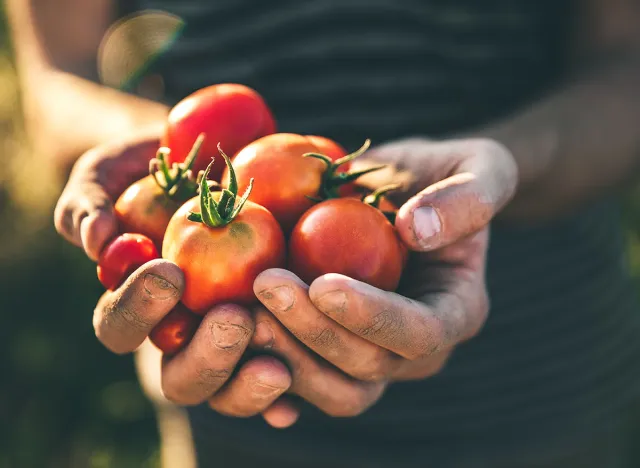
Enjoy delicious tomatoes, especially cooked. "A source of lycopene, which can help to fight prostate cancer in particular, as it mops up the free radicals that cause damage to body tissue," says the American Cancer Fund. "The body absorbs lycopene more efficiently if the tomatoes are cooked, so use freely in soups and sauces. Tinned tomatoes are an excellent source of lycopene, as they have already been cooked."
Garlic
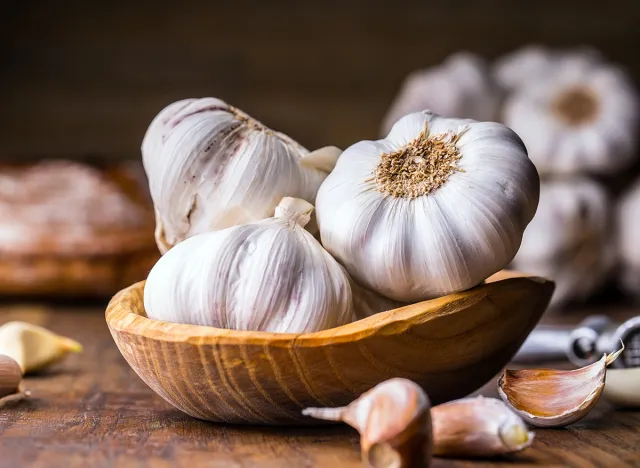
Garlic is delicious and so good for you. "It is also a powerful antioxidant and is considered one of the best natural remedies for colds and flu," says the American Cancer Fund. "Garlic has also been shown to help reduce high cholesterol levels."
Beans and Legumes
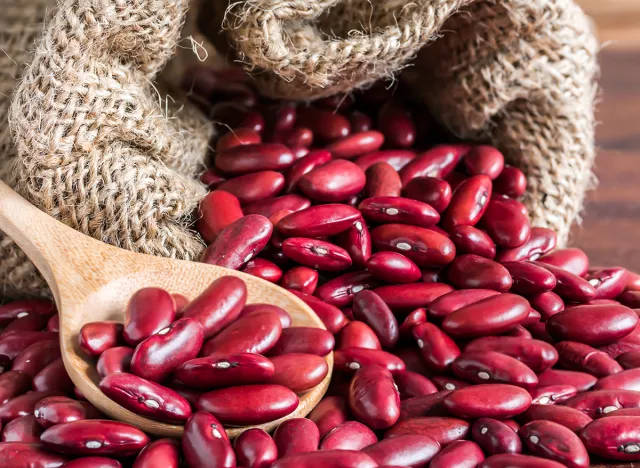
Beans and legumes are an excellent source of plant-based protein. "With their high amounts of fiber, beans keep your digestive system working in top shape," says Dr. Adrienne Stein, ND. "They're also protective of heart health and are associated with lower blood pressure. And, beans are a filling high protein source, which can help regulate blood sugar and keep weight in check."
RELATED: I Hit 60 and These are the Daily Habits that Keep Me Fit and Feeling 20 Years Younger
Mushrooms
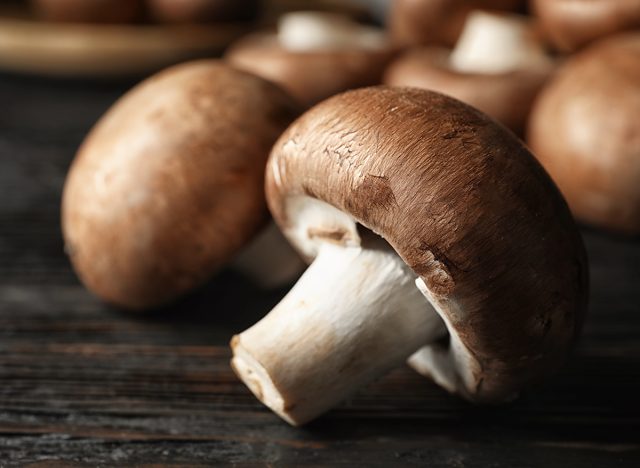
Mushrooms are versatile and so good for you. "Mushrooms are high in B vitamins and potassium, and therefore good for your heart," Stein says. "They're a good source of selenium, a mineral that acts as a powerful antioxidant."
Nuts and Seeds
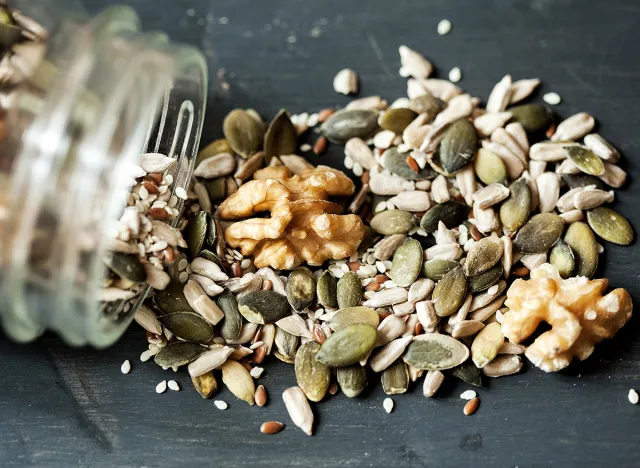
Nuts and seeds are full of healthy fats and protein. "They have protein and fiber, and they can make you feel full," Rosenbloom says. "Eat just a handful as an afternoon snack, and you won't be starving at dinnertime."
Brazil Nuts
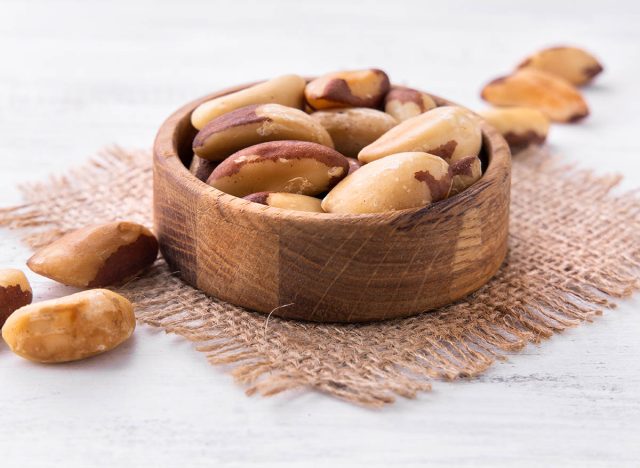
Brazil nuts are high in healthy fats and nutrients. "They are an excellent source of the antioxidant selenium, which neutralizes free radicals in the body," says the American Cancer Fund. "Just two or three Brazil nuts a day will provide you with adequate levels of selenium."
Matcha Green Tea
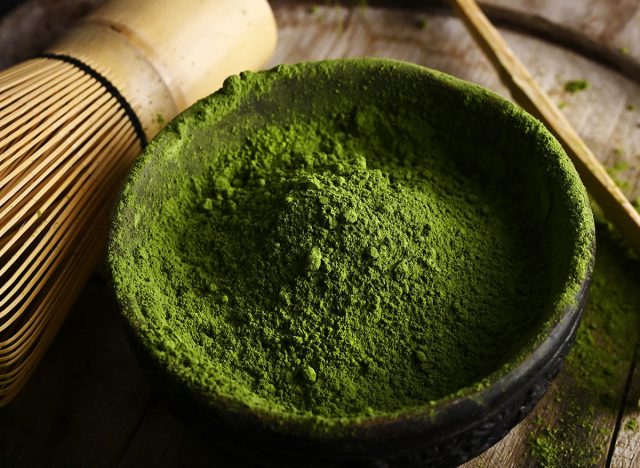
Green tea is calorie-free and packed with antioxidants. "Matcha green tea is considered one of the healthiest varieties of green tea because tea drinkers consume the entire leaf," Stein says. "Make sure you are buying organic to reduce pesticide exposure and to ensure you are reaping all the benefits of this superfood."
Lemon and Lime
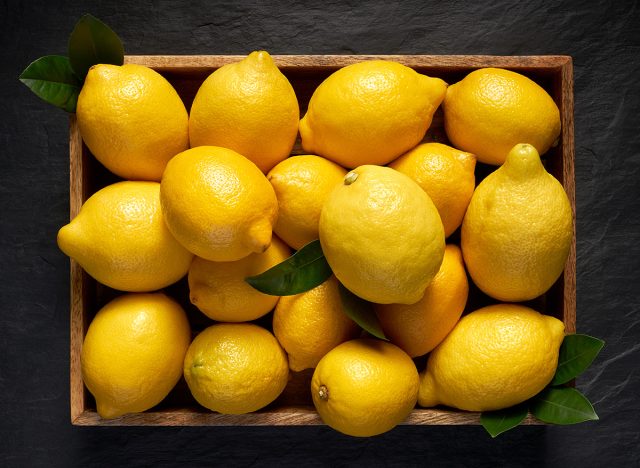
Citrus fruits are delicious and nutritious. "One easy way to get calcium in your diet is to squeeze half a lemon, lime, or orange into your water," Alicia Arbaje, MD, associate professor of medicine at the Johns Hopkins School of Medicine in the Division of Geriatric Medicine and Gerontology, tells AARP. "You'll also get electrolytes, sodium, potassium, calcium, and magnesium, all minerals that your body needs."
Whole Grains
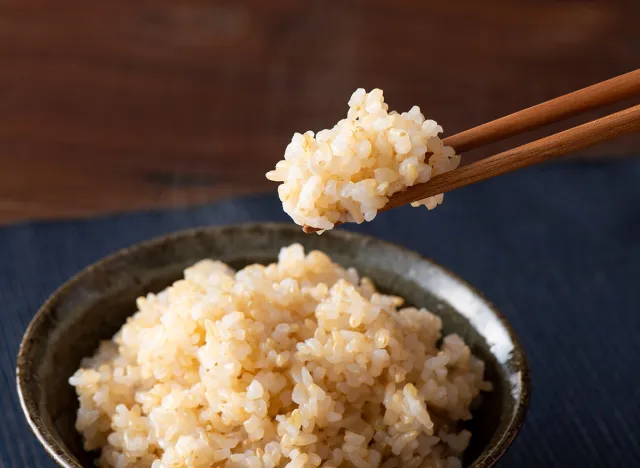
Whole grains are packed with fiber and nutrients. "People who want to age well should look to whole grains," says Brynna Connor, MD. "Try switching out white bread for whole wheat bread, refined pasta for wheat pasta, and white rice for brown rice. You can also eat more grains like quinoa, oats, or popcorn."
Broccoli
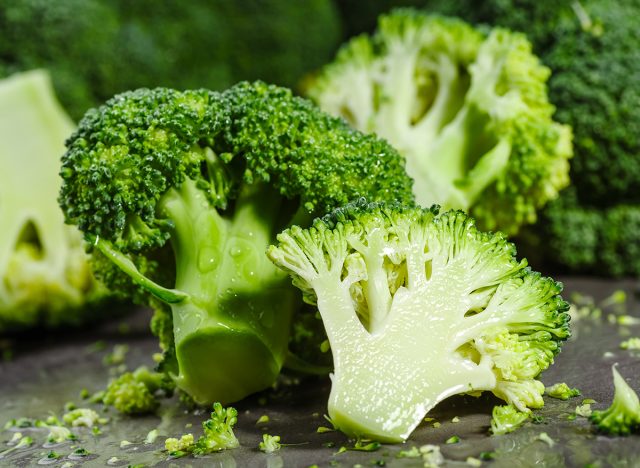
Incorporate broccoli into your daily diet. "A powerhouse source of iron, broccoli is the king of vegetables," says the American Cancer Fund. "Absolutely packed with bioflavonoids, it is top of the list of anti-cancer vegetables and has been shown to protect against breast and prostate cancer. Use it steamed or in stir-fries."
Cottage Cheese
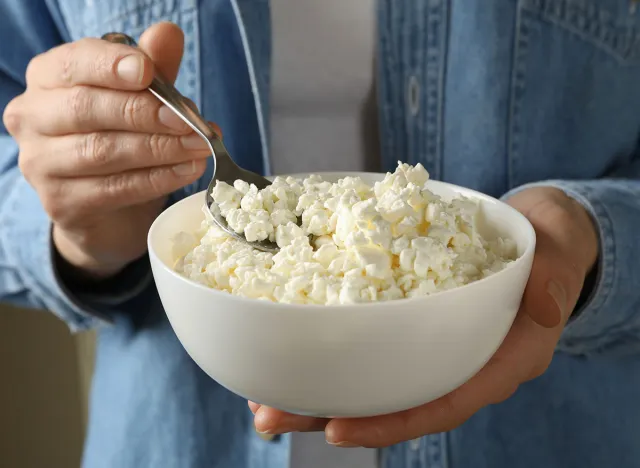
Cottage cheese is full of calcium and protein. "Cottage cheese is a great source of whey protein, which helps stimulate muscle protein synthesis," Rosenbloom tells AARP. "Athletes know this — after a workout, they often have a shake based on whey protein. But instead of doing that, eat cottage cheese."
RELATED: Eat More of These 10 Foods to Lose Weight Fast
Eat With Others
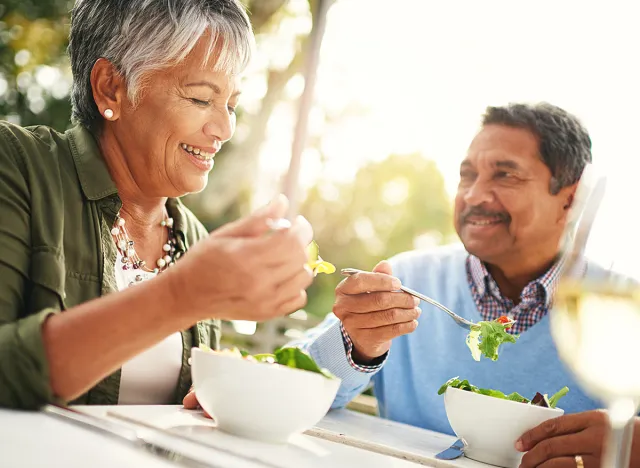
Eat with others whenever you can—social relationships are essential. "Friends, family and gathering socially with our community makes mealtime more enjoyable and is just as important for our mental health as what we eat is for our bodies," geriatric specialist Ami Hall, DO, tells the Cleveland Clinic. "Invite others to join you, share stories, and connect while you eat." And if you enjoyed this article, take advantage of these 15 Quick Ways to Lose Body Fat Percentage in a Week.




